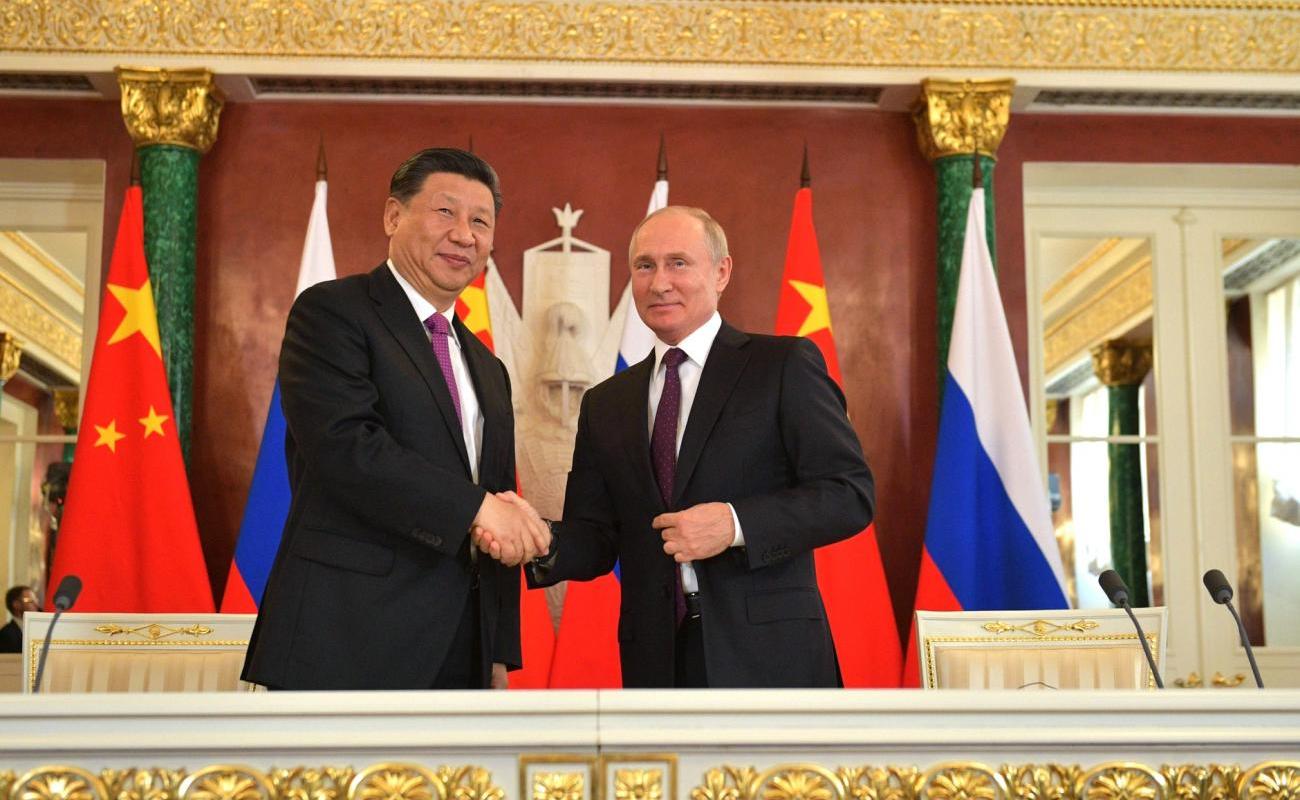China to overtake Russia as Beijing reaches first place on long-term threat shortlist
WESTERN reliability on China both economically and technologically will see China become the world's major long-term threat to international security as Russia will be "significantly weakened" as result of its invasion in Ukraine, Director of International Security Studies at RUSI Neil Melvin claimed.

Director of International Security Studies at the Royal United Services Institute (RUSI) Neil Melvin argued both China and Russia represent a major threat to international security. Looking at the long-term, however, he claimed that, despite Russia holding thousands of nuclear weapons and therefore remaining an immediate “major threat to peace and security”, western economical and technological reliability on China will see the country become the world’s biggest long-term threat to international safety and security. Speaking with express.co.uk, Mr Melvin forecasted that in the longer term Russia will be “significantly weakened” as result of his invasion in Ukraine but China, unlike Russia, will “continue to grown” exponentially and to strengthen its influence, posing a major threat to global safety and security.
Mr Melvin told express.co.uk: “It’s a question of different kind of threats in the long term.
“It has a very large military which, of course, is military significant in the Indio-Pacific region in its neighbourhood and in same relations with the United States but also other countries like India and the question around Taiwan.”
He stressed: “China is also able to shape development in the economy and technologically, which Russia is not able to do.
Referring to Russia individually, he argued: “Russia, of course, has thousands of nuclear weapons so on a global scale it remains a major threat to peace and security because, unlike China, it could actually manage a massive nuclear strike if it chose to do that.”
When asked whether the west should be doing something more and more quickly to tackle China, he said: “I think we have seen quite significant move towards recognising that China is a much bigger challenge than we thought and even in the NATO summit, which took place in June, for the first time we really get recognition in that document that China is not an economic opportunity, but actually represent something of a threat.”
On the occasion of the NATO summit held in Madrid in June, NATO countries have for the first time included China in the Strategic Concept as posing a “systemic challenge” to Euro-Atlantic security.
The introduction of China into the Strategic Concept document came as consequence of the “deepening strategic relationship” between Moscow and Beijing as well as opposing stance to NATO alliance.
As noted in the NATO document, on February, 2, 2022 both countries issued a joint statement where both superpowers objected to the alliance and explicitly opposed the “further enlargement of NATO”.
Despite China not having officially backed Russia in its decision to invade Ukraine, last June Beijing became Russia’s biggest oil importer, a move believed to provide significant financial support to Moscow in light of the economic sanctions that the west put into place in support of Ukraine.
Referring to the measures the west should take in relation to China, he argued: “I don’t think we necessarily have to argue that the pace of change needs to be accelerated because it is also a more complicated issue than with Russia because China is integrated into the global economy.”
He explained: “Many countries are economically reliant on China and so we need to manage that issue. Looking ahead, it does seem as though that trajectory of relations is growing more and more towards the confrontation.
“I think we’re likely to see more alliances, such as the AUKUS which the UK, Australia and the United States set up last year, emerging and greater discussing about how to actually create a deterrence against China which we haven’t really fully though that through yet”.
